As the Ukraine crisis settles into what appears to be a long stalemate, perhaps it is time to consider the future of Russian recalcitrance to the West—and who and what may follow in the footsteps of the main author of this recalcitrance, Vladimir Putin. But did it also need Putinism? Will it in the future? Will the autocratic, state-centered ideology that Russian’s leader has come to represent survive the man?
I believe there is a good chance that it will. Coming out of the failure of the Soviet Union, Russia needed a new feeling of mission, a new Russian idea. This is what Putin delivered. Though there is no elaborate Putinist ideology, a document prepared by a think tank established by the Russian politician German Gref in 1999, constituted a platform for Putin’s election campaigns. The document said that Russia was passing through the greatest crisis in its history and that all its resources, political, economic, and moral, would have to be enlisted so that a united country will be able to overcome it. The country needed solidarity and above all gosudarstvenost, or strong state power.
This need is not going away. Contrary to the beliefs of those who subscribe to the idea of an “End of History” in which liberal democracy becomes the common form of government throughout the world, Russians feel the need for strong state power more than many other countries. At the core of the Russian character is a belief that, without discipline, people would not work and nothing would function, and only government authority can enforce this discipline. Given the basic anarchic inclination of the people, but for a strong state power, the country would fall apart. Beyond that Russians tend to believe that Russia can exist only as a great power to fulfill its historic, God-given mission, and a democratic Russia would not be strong enough to attain great power status. This is at the root of the weakness of every democratic movement in Russia throughout history.
The most important component in Putinist ideology is nationalism accompanied by anti-Westernism. The origins of this intense anti-Westernism are not entirely clear; anti-Americanism did not exist before the Cold War to any significant degree. But from an eminently practical perspective, it has to do with the need of the FSB, the successor organization to the KGB, to justify its existence, budget, and policy. And Putin is a man whose mindset comes out of the KGB. For unless Russia is protected against its dangerous, powerful, and devious enemies, the country will be destroyed again. Hence the need to maintain this enormous and costly security apparatus headed by the new nobility of the country.
True, there is every reason to think that the personality cult of Putin will not survive. It is not really a permanent feature in Russian history— after all, no czarist minister ever became the object of such adulation. Nor has Putinism, at least as defined as state capitalism, been a very successful enterprise. It means autocracy, but this is nothing new in Russian history, and whatever benefits that may bring are almost mitigated by inefficiency and corruption.
But Putinism is likely to survive because it has not been a disaster, and there is at present no alternative. The only opposition comes from forces even more anti-democratic and further to the right than Putin. Russians perceive their country as a besieged fortress surrounded by enemies who want to inflict great harm on her. This fear is shared by a majority of the public and is reinforced by government propaganda, above all on controlled television. The chaos that prevailed in Russia during the 1990s proves he need for a set of beliefs like Putinism. It may go in future under another name but in essence it will be on the same lines.
It is also true that Putin admirably fit the role of a leader as wanted by many Russians at the time. Democratic institutions were not in demand, but the country wanted a leader exuding strength and self- confidence.
Most Russians have come to believe that democracy is what happened in their country between 1990 and 2000, and they do not want any more of it. There never was democracy in Rus sia except perhaps for a few months in 1917, hence the deep- seated distrust and aversion, the belief that democracy is the state of affairs in which a few people get very rich and the rest remain poor or get even poorer.
Whoever succeeds Putin is not likely to be much of a democrat either. Obviously the successor will have to belong to the new “nobility.” He will have to be capable but not too much so in order to avoid outshining his predecessor. He will have to be considered loyal to the leader who appointed him and trusted to pursue his policy. Under Putin, the state has regained its traditional function and become the largest corporation responsible for establishing the rules of the game. It may be an autocratic regime, but it needs the assent of its citizens. For now, it has that in spades.

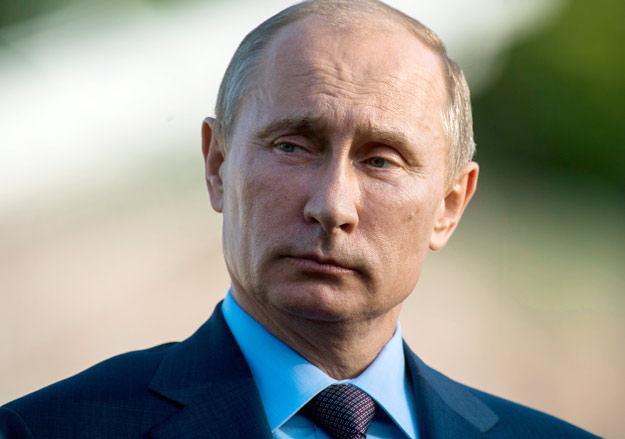
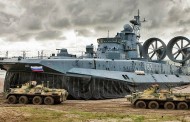
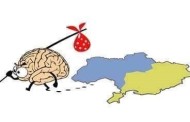
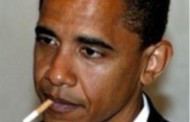
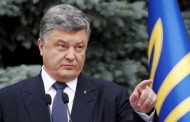
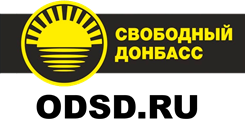
Recent Comments
Zak Novak in: Peaceful In Donetsk People's Republic, No Bombings From The Poroshenko Regime
Actually Anne,,its the opposite,,,it falls under Russian Plans,,It wil ...
z Krakowa in: Hudziec: wybory, a demokracja
Obserwując od jakiegoś czasu Zachód widać wyraźnie, że demokracja funk ...
olin in: Zacharczenko: zabraniam dostaw węgla na Ukrainę, bo nie jest to warte żadnej ceny
Panie Zacharczenko popieram w 100%-tach. Upaińcy leżą i kwiczą przed z ...
olin in: Kolejny magazyn broni zlikwidowany przez SBU
alle burdel w tym szambie ! ...
olin in: "Tekturowe" bunkry
Ot cała ukraina i jej wierzyciele........................... . ...